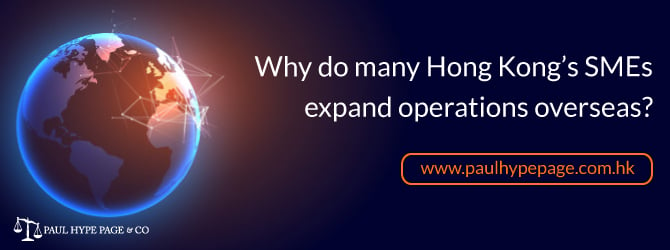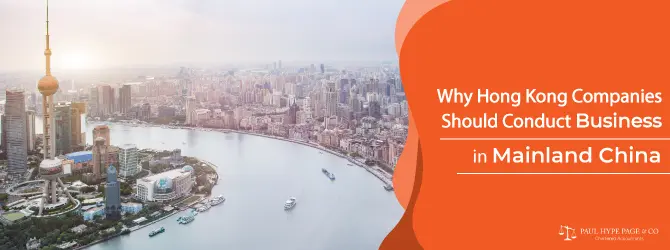What’s in this article
- Brief History of Hong Kong
- About China
- What is Business Landscape?
- Changing Business Landscape in Hong Kong
- Business Landscape in China, Specifically South China
- The difference between Hong Kong and China
- How the relationship between China and Hong Kong Affects Business
- Can Hong Kong and China Separate?
- Does China need Hong Kong?
- Hong Kong and China’s relationship FAQs
Brief History of Hong Kong
Hong Kong, a semi-autonomous region with its own money, passports, immigration channels, and legal system, was ruled by Great Britain for 156 years. When the British Colony’s 99-year lease came to an end, Hong Kong was returned to China as a Special Administrative Region (SAR). Since then, Hong Kong has become Hong Kong Special Administrative Region (HKSAR) and became a part of China.
About China
China is an East Asian country and the world’s most populous. It is governed by the Communist Party of China, which has jurisdiction over 22 provinces, five autonomous regions, four direct-controlled municipalities, and the SARs of Hong Kong and Macau.
Its economy is the second-largest worldwide after the United States. It built its economy on massive industry development, ramping up its industrial and service output over the years.
China agreed to govern Hong Kong under the principle of “one country, two systems,” where the city would enjoy “a high degree of autonomy, except in foreign and defense affairs” for 50 years. As a result, Hong Kong has its legal system, and rights, including freedom of assembly and free speech, are protected. But it governs itself and maintains many independent systems.
What is Business Landscape?
A business landscape is a commercial activity or dealings, or an area that is specifically designated and landscaped to accommodate business offices, warehouses, and light industry.
Changing Business Landscape in Hong Kong
Over the years, Hong Kong has experienced a shift in its business environment. Innovations and technologies currently emerging in Hong Kong may set new standards. The coronavirus crisis and political factors may also contribute to this change.
Business Landscape in China, Specifically South China
The Southern part of China is mostly composed of coastal regions like Guangxi, Guangdong, Zhejiang, Fujian, and Hainan, considered attractive regions. It is dynamic and continually evolving. It is particularly high in the number of Free Trade Zones and other Special Economic Zones. For example, Guangdong is an economic center of South China. The primary industries there are;
- High-tech industries
- Manufacturing, and
- Logistics finance.
It leads to Gross Regional Product (GRP) and imports/exports. On the other hand, Fujian is known for manufacturing (heavy industry), finance, and tourism. Guangxi is known for automobile manufacturing.
The difference between Hong Kong and China
- The most significant difference between the two is the system of governance. Hong Kong defers with mainland China in two primary areas: military defense and international relations. Hong Kong does not maintain its own military, but China manages the military defense of Hong Kong.
- In the face of international diplomacy, Hong Kong has no separate identity from China.
- Hong Kong has its legal system, currency, and parliamentary system. Unlike citizens in China, Hong Kong citizens enjoy the freedom of speech, freedom to the press, freedom to protest, and an independent judiciary. It also has its national flag and anthem.
- Hong Kong is not just any ordinary Chinese coastal city but also a special international financial hub and Freeport under China’s sovereignty. You cannot talk about Hong Kong’s culture and fail to mention China; it the same culture.
- China is more of a traditional value-system, while Hong Kong is more of an international city.
Business differences
- Hong Kong is more of a service economy, while mainland China is more dependent on manufacturing, although the service sector is picking up.
- Hong Kong’s Gross Domestic Product (GDP) is higher than in China.
- Mainland China’s stock markets are more restrictive and have higher financial requirements; hence Hong Kong is the preferred destination for companies looking to raise capital.
- Hong Kong is a free economy with less government interference, including low tax rates.
- The stock markets of mainland Chinese are more conservative and restrictive.
- The registration-based IPO system in Hong Kong enables listing to be relatively faster and easier than in mainland China.
- Hong Kong has an effective regulatory framework that focuses on transparency and prudent minimum standards.
- The absence of capital controls and greater international exposure allows Hong Kong to serve as an anchor point for global expansion.
- China uses Hong Kong’s currency, equity, and debt markets to attract foreign funds, while international companies use Hong Kong as a launchpad to expand into mainland China.
How the relationship between China and Hong Kong Affects Business
- Hong Kong views its relationship with mainland China as colonization, similar to how they were under British rule.
- The relationship between Hong Kong and China is complicated. It involves politics, economics, trade, laws, and people.
- Hong Kong is an international financial hub, business center, shopping paradise, and tourist destination.
- Despite diplomatic relations, economic ties have remained strong between Hong Kong and China. They boost each other’s economies, and they have good and economic relations.
- Hong Kong is seen as a gateway to China by interested in doing business or accessing Chinese stocks or investments.
- Mainland China is Hong Kong’s largest trading partner and its second-largest source of inward direct investment. China is the leading destination for domestic exports and the biggest supplier of imports for Hong Kong.
- Hong Kong is the major supplier of re-exported goods to china.
Can Hong Kong and China Separate?
Article 1 of the Hong Kong Basic Law states that Hong Kong is an inalienable part of the People’s Republic of China. Any advocacy for Hong Kong separating from China has no legal basis. Same cultural origin and close connection.
Does China need Hong Kong?
Hong Kong’s economy is closely intertwined with mainland China. Hong Kong has a world-class financial and legal system. It is one of the world’s most open economies and one of the biggest markets for equity and debt financing. However, China still has extensive capital controls and often intervenes in its financial markets and banking system.
Unlike China, Hong Kong has freedom of expression and an independent judiciary. The freedom gives Hong Kong a special status internationally, allowing it to negotiate trade and investment agreements independently from Beijing. These freedoms also give foreign investors more faith in Hong Kong’s legal system.
From the state-owned Industrial and Commercial Bank of China to private firms, most of China’s most prominent firms have listed in Hong Kong, often as a springboard to global expansion. More assets are held in Hong Kong by Chinese banks than regions. Losing such massive financial channel risks destabilizing the already slowing Chinese economy. Hong Kong’s port continues to handle a hefty share of China’s exports and imports, and the city is also China’s largest trade partner.
Hong Kong also has been pivotal to China’s long-term ambition to turn the Yuan into a widely-used international currency. Achieving that goal would increase the world’s stake in China’s success and Beijing’s influence.
Summary
The People’s Republic of China and Hong Kong complement each other economically, with the most significant barrier being their political differences. Hong Kong is unsurpassed in the extent to which it brings local and overseas firms together in a single business community.
The constant interaction between thousands of overseas firms and local businesses in a supercharged business environment generates growth opportunities for both supply and new markets and links up with business partners from Hong Kong and China.
Hong Kong and China’s relationship FAQs
The system of governance.
According to Article 106 of the Hong Kong Basic Law, Hong Kong does not have to pay tax to China.
Hong Kong was a British colony that was handed to China by their colonizers in 1997 since the two, China and Britain, signed an agreement in 1984. China governed Hong Kong under the one country two systems where they enjoyed independence except for defense and foreign affairs.
Hong Kong and China are not the same. Hong Kong is the special administrative region of China. The executive, judicial, and legislative powers have been devolved from the Chinese national government to Hong Kong under the ‘one country two systems’ law.








